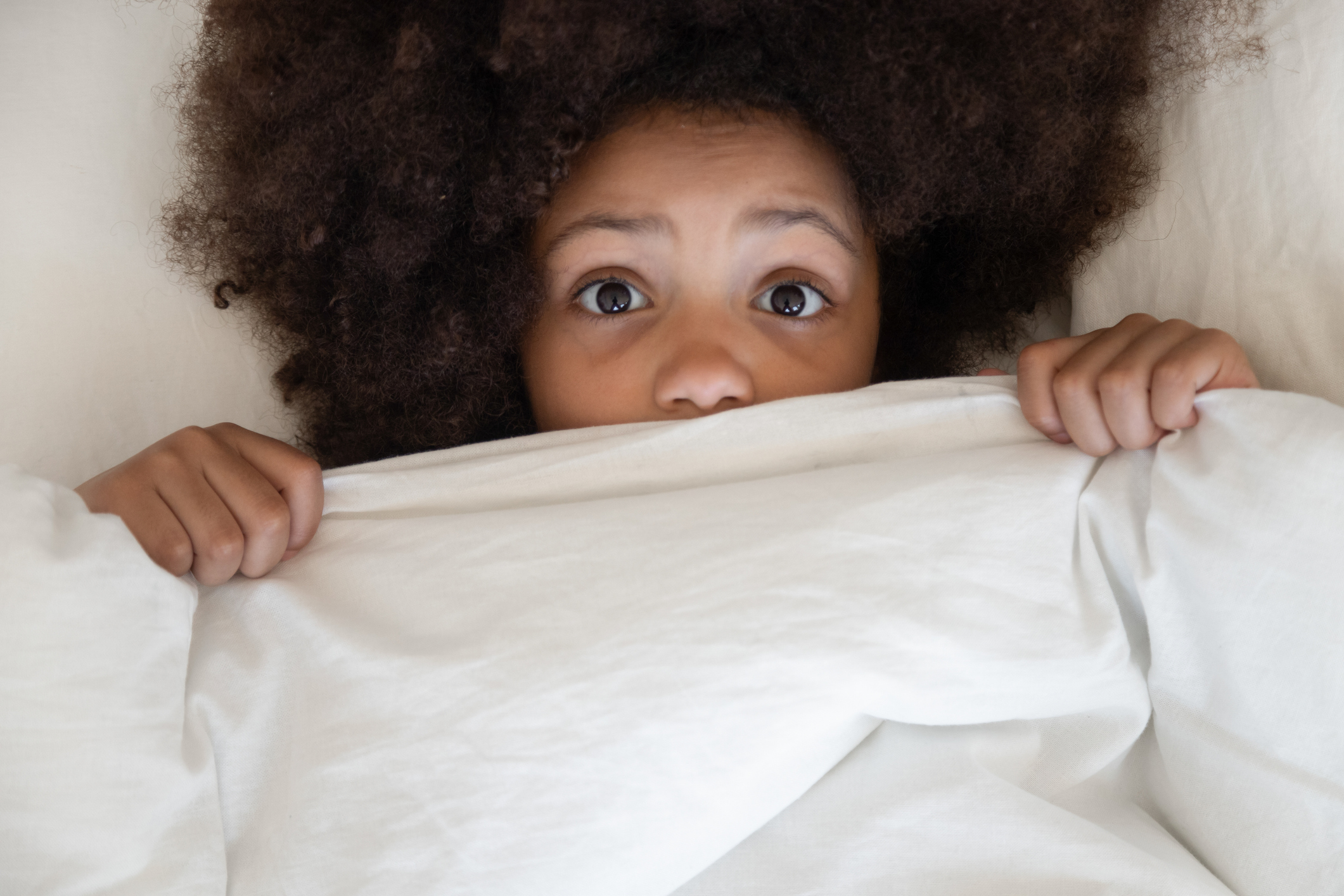
If you have ever been awoken by a screaming toddler who looks wide awake but is not consolable, you have experienced a child having a night terror.
What Are Night Terrors?
Night terrors are an inherited disorder in which a child tends to have dreams during deep sleep and it's hard to wake them. These occur in about 2% of children. Getting overtired is a major trigger for night terrors. That was the primary cause of night terrors for my two boys. Night terrors usually occur in children from one to eight years old. You'll know it's a night terror because usually between one to two hours after your child goes to sleep, they will wake up screaming and the screaming lasts up to 30 minutes.
During a night terror, your child may be agitated and restless but you cannot wake them up and you cannot comfort them. Again, they may look wide awake but they're not. They may sit up or run or scream or talk. They may appear to not even realize you are there, again even though their eyes are wide open and they're staring at you. They can also mistake objects or persons in the room for dangers like shadows. In the morning, your child won't remember a thing that happened. You may not get any sleep but your child is sleeping during the whole thing.
So how long do they usually last? Night terrors are harmless and each episode will end on its own and the child will fall back into a deep sleep. The good news is the problem usually disappears by age 12. Quite often sooner than that.
Treating Night Terrors
So if your child has night terrors, what can you do to help them? The most important thing is to try to help them get back to normal sleep. Your goal is to help them go from agitated sleep to calm sleep. You won't be able to wake your child up so don't even try. Turn on the light so the child is less confused by shadows. Make soothing such as, "You're all right. It's okay." Talk calmly to them and some children like to have their hand held during this time but most will pull away, kick you, or push you away. They actually see you as a threat.
Unfortunately, there is no way to shorten these episodes. Shaking or shouting at your child will just cause them to be more agitated and will prolong the night terror. The most important thing for your child is to protect them from any injury. During a night terror, a child can fall down a stairway, run into a wall, or even break a window. So your job is to gently direct your child back to bed where they are safe.
Can night terrors be prevented? Well, it would be nice but no. If your child's going to get night terrors, they will have them. There are some things you can do to make the night terrors less prevalent. Keep your child from being over-tired. Again, that is the most common trigger for a night terror.
For preschoolers, if they have stopped taking an afternoon nap, restart it. And if the child refuses to nap, just try encouraging a one-hour quiet time period. Also, try to avoid getting your child to bed late because getting to bed late is also a trigger for night terrors.
Timing the Night Terror
If your child is over six years old and they are having frequent night terrors like one every night. You can try using a method of waking your child up at night before the night terror occurs. This method helps eliminate the problem in about 90% of children. For several nights, note how many minutes elapse from the time your child falls asleep, not when you put them to bed, but when they actually fall asleep to the onset of the night terror. Then begin waking your child every night 15 minutes before the time the night terror is supposed to occur. Remind your child to wake up fast. Keep your child fully awake and out of bed for five minutes and continue doing this for seven nights in a row. If they night terrors once you stop this wakening . . . your child, repeat for the next seven days until eventually the night terrors stop.
Symptoms of Something Other than a Night Terror
What are some concerning signs that this is not a night terror? Night terrors can be very scary and sometimes they can be mistaken for seizures or other serious medical problems. If your child has any drooling, rhythmic jerking, or stiffening. If they occur during the second half of the night, like closer to three, or four o'clock in the morning. If your child has several daytime fears or if you feel stress may be a factor, you need to talk to your child's doctor about these night terrors. Make sure they're not something else. Make sure they're not nightmares. Make sure there's not anything else going on that could trigger these symptoms.
Eventually, your child like mine will outgrow night terrors. Until then prevention is the best method to help ensure a good night's sleep for all.
updated: August 28, 2023
originally published: April 27, 2015
How to Handle Screen Related Temper Issues in Children
Is your child's screen time causing more tantrums? Pediatrician Cindy Gellner, MD, reveals how excessive digital exposure can lead to emotional challenges in kids.
More Answers to Your Questions on Keeping Your Kid Healthy
Latest trends and issues in children's health on the Healthy Kids Zone with Dr. Cindy Gellner







